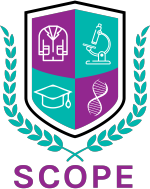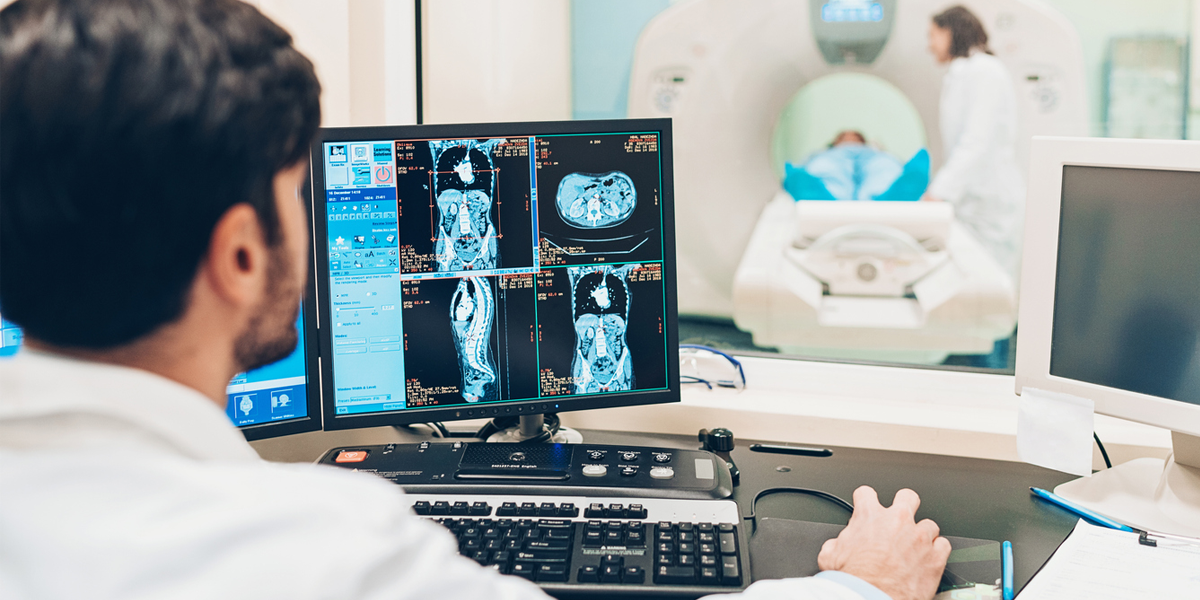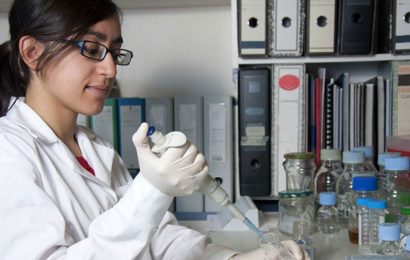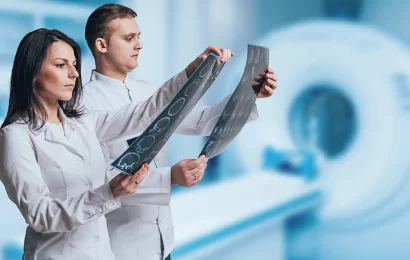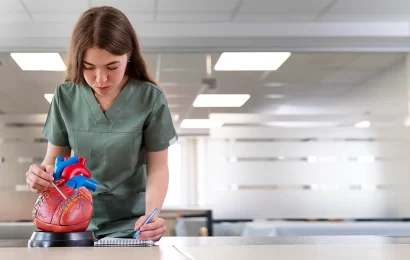- Instructor: projects.paarami@gmail.com
| Course Name | Bachelor of Vocational in Radiology and Medical Imaging Technology |
|---|---|
| Course Level | Bachelors |
| Course Duration | 2 or 3 years |
| Course Eligibility | For Lateral 10 + 3 (SSC + Diploma ) or 12 + 1 (Diploma in Radiology and Imaging Technology) |
| Average Salary | Rs. 2,00,000 to Rs. 5,00,000 per year |
| Areas of Employment | Government/Private Hospitals, Rehabilitation centres, Medical Imaging Labs, Radiography centres |
| Government Affiliation | Yes |
What is Vocational in Radiology and Medical Imaging Technology?
Medical imaging technology deals with the clinical analysis of interior parts of the human body. This discipline plays a huge role in diagnosing different types of diseases and conditions of the interior organs/parts/tissues of the human body that are not visible to the naked eye.
X-Ray, CT Scans, MRI Scans, Sonography, ECG – are different forms of medical imaging technology. Medical imaging technology can be used to obtain visual representations of bones, muscles, tissues, and organs like the stomach, intestines, lungs, brain, etc.
Why Bachelors Vocational in Radiology and Medical Imaging Technology?
A Bachelor of Vocational (B.Voc) in Radiology and Medical Imaging Technology provides specialized knowledge and practical skills in diagnostic imaging techniques, enabling graduates to operate imaging equipment, perform diagnostic procedures, and contribute to patient care. This program offers a direct pathway to a career in the rapidly evolving field of medical imaging, where professionals play a vital role in the accurate diagnosis and treatment of diseases.
Why SCOPE?
At SCOPE, students learn with the most advanced techniques and equipment according to international standards.
What does a Radiology Technician do?
Here are some of the core subjects where Radiology technologists play an important role-
- Patient preparation
- Medical image processing
- CT/MRI films
- Pharmacology- Drugs / Contrast medium
- Lab managing system
- Medical imaging equipment
Career Prospects
Medical imaging professionals have access to different types of job opportunities. They are employed by-
- Government hospitals
- Private hospitals
- Clinics and Nursing homes
- Rehabilitation centres,
- Medical imaging labs
- Radiography centres
Frequently Asked Question
What is the scope of B. Voc Radiology and Imaging Technology?
The B. Voc in Radiology and Imaging Technology offers extensive scope in the medical field. Graduates can pursue careers as Radiologic Technologists, MRI Technologists, CT Technologists, and more in hospitals, diagnostic centers, and imaging labs. The program also provides opportunities for further studies and specialization in advanced imaging techniques.
What is the salary of B. Voc Radiology and Imaging Technology in India?
The average salary for a B. Voc in Radiology and Imaging Technology graduate in India ranges from Rs. 2,00,000 to Rs. 5,00,000 per year. This can vary based on the role, experience, and location of employment.
Is NEET required for B. Voc Radiology and Imaging Technology?
No, NEET is not required for admission to the B. Voc in Radiology and Imaging Technology program.
Is B. Voc Radiology and Imaging Technology in demand?
Yes, B. Voc in Radiology and Imaging Technology is in high demand due to the increasing need for diagnostic and imaging services in the healthcare sector. Advances in medical technology and a growing healthcare infrastructure have further enhanced the demand for skilled professionals in this field.
What is the difference between B.Sc Radiology and B. Voc Radiology?
The primary difference between B.Sc Radiology and B. Voc Radiology is the focus and structure of the programs. B.Sc Radiology is a more traditional academic program emphasizing theoretical knowledge and research. In contrast, B. Voc Radiology is a vocational program designed to provide practical skills and hands-on training, preparing students directly for the workforce with industry-relevant skills.
